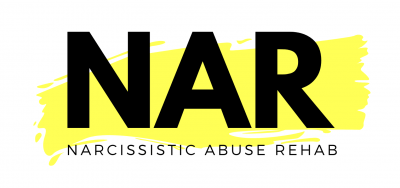Trigger Warning: This article may contain content that might be uncomfortable for people affected by misinformation regarding this topic. Reader discretion is advised.
The controversial theory of parental alienation syndrome (PAS) was conceptualized in the 1980s by clinical psychologist Richard A. Gardener, who defined it as follows:
“The parental alienation syndrome is a childhood disorder that arises almost exclusively in the context of child-custody disputes. Its primary manifestation is the child’s campaign of denigration against a parent, a campaign that has no justification. It results from the combination of a programming or brainwashing parent’s indoctrination and the child’s own contributions to the vilification of the target parent.”
The pseudo-concept of parental alienation was coined by Richard Gardner, a psychologist, who claimed that children alleging sexual abuse during high-conflict divorces suffer from ‘parental alienation syndrome’ caused by mothers who have led their children to believe that they have been abused by their fathers and to raise allegations of abuse against them.
Reem Alsalem
The American Psychological Association rejects parental alienation syndrome as a legitimate diagnosis. It is not included in two important books that mental health professionals use to diagnose psychological issues. These books are the Diagnostic and Statistical Manual of Mental Disorders, Fifth Edition (DSM-V) and the International Classification of Diseases, Eleventh Edition (ICD-11). Studies have shown that the theory behind this diagnosis is not true and it is not supported by science.
The breakdown of the relationship between parent and child falls is an extension of coercive control..
Why is Parental Alienation a Rejected Theory?
The American Bar Association published an article clearly stating, “there remains no test, no data, or any experiment to support claims made concerning PAS. Because of this lack of scientific credibility, many organizations—scientific, medical, and legal—continue to reject its use and acceptance.”
It included reports from the Presidential Task Force of the American Psychological Association on Violence in the Family, The National Council of Juvenile and Family Court Judges (NCJFCJ), The American Prosecutors’ Research Institute and the National District Attorney’s Association.
For several decades, parental alienation has repeatedly failed to stand the test of scientific scrutiny. Most recently, PAS was been rejected in a report commissioned by the Human Rights Council after it was examined in a damning report by Reem Alsalem, the United Nations Special Rapporteur on violence against women and girls, its causes and consequences:
“The pseudo-concept of parental alienation was coined by Richard Gardner, a psychologist, who claimed that children alleging sexual abuse during high-conflict divorces suffer from ‘parental alienation syndrome’ caused by mothers who have led their children to believe that they have been abused by their fathers and to raise allegations of abuse against them.”
Furthermore, the report found a link between PAS and domestic violence as it is frequently used as a D.A.R.V.O. tactic by perpetrators of coercive control and child sex abuse to deflect attention away from their crimes.
Parent-child estrangement is a common feature of coercive control, which is the correct term for the phenomenon.
Child Withdrawal is a Relationship Issue Not a Pathology
One of the reasons the theory of parental alienation syndrome is considered problematic is because it pathologizes children who have relational issues with a parent. Relationship breakdowns are not necessarily indicative of psychological disorders. In order words, withdrawing from a relationship with a parent may occur without any impairment of a child’s healthy psychological functioning. Moreover, mental health treatment is not always a prerequisite for resolving the issue of a child’s withdrawal from a parent.
As painful as the situation is, it can be helpful to develop an understand of the child’s perspective. Parent-child attachment specialist Dr. Michael Kinsey, explains, “If a child is forced to choose, they might choose the person that they feel they are most like or they’ll also choose the person who they feel is safer or who they feel is the more desirable one to follow. In the case of the kind of scenario you’re discussing, it’s really a matter of survival. Being in the ‘in-group’ of the narcissist is essential to survival.”
It can also help to read evidence-based research into the some of the reasons why some children withdraw from parents in high-conflict relationships.
The Importance of Empowered, Accurate, and Solution-Oriented Language
The breakdown of relationships between parents and children is a sad and painful reality in many families. Parent-child estrangement is a common feature of coercive control, which is the correct term for the phenomenon. Anti-social partners may weaponize relationships with children to punish and isolate the recipient of the abuse.
The purpose of this article is to empower people who have lost cherished relationships with a parent or child with accurate terminology and arm them with evidence-based language so that they may collaborate with professionals from an informed perspective.
Summary
Many people searching for answers to an excruciating question relate to the theory of parental alienation syndrome. It can resonate deeply with parents who are grieving the absence of a beloved child. However, attributing the child’s withdrawal to a discredited mental health construct will not solve the problem. Children do not have to be afflicted with cognitive, affective, or behavioral problems to distance themselves from a parent. There are many reasons why a healthy child might take such a painful decision that merit further exploration using the framework of family estrangement.
References
- Gardner, Richard A. “Recent trends in divorce and custody litigation.” In Academy forum, vol. 29, no. 2, pp. 3-7. 1985.
- Miguel Clemente & Dolores Padilla-Racero (2016) When courts accept what science rejects: Custody issues concerning the alleged “parental alienation syndrome,” Journal of Child Custody, 13:2-3, 126-133, DOI: 10.1080/15379418.2016.1219245
- Alsalem, R. (2023) “Report of the Special Rapporteur on violence against women and girls, its causes and consequences.” Human Rights Council Fifty-Third Session 19 June–14 July 2023.
- Meier, J.S. (2009) “A Historical Perspective on Parental Alienation Syndrome and Parental Alienation, Journal of Child Custody,” 6:3-4, 232-257.
- Dallam, S., Silberg, J. (2016). “Recommended treatments for “parental alienation syndrome” (PAS) may cause children foreseeable and lasting psychological harm.” Journal of Child Custody. 13. 134-143.
- Thomas, R.M., Richardson, J.T. (2015, July 1) “Parental Alienation Syndrome: 30 Years On and Still Junk Science,” American Bar Association.
- Vilalta, R., Winberg Nodal, M. “On The Myth of Parental Alienation Syndrome (PAS) and the DSM-5,” Psychologist Papers, 2017. Vol. 38(3), pp. 224-231.
Confidential support is available 24/7/365 to anyone experiencing abuse.
Book a one-on-one consultation or coaching session.
NAR’s Journalistic Standards and Practices
About NAR • Report Typo or Error






